A lot of hoverflies pretend to be
something else;
Eristalis tenax looks like a honey-bee,
Chrysotoxum species look like social wasps, and
Volucella zonaria and
inanis do a pretty good hornet impression. On Saturday I found a hoverfly that didn't look much like a hoverfly, but didn't really look like much else either. The
Brachyopa genus of hoverflies is represented by four species in the UK, none of which I'd seen before this weekend, and all of which are notoriously tricky to identify, so when I saw one on the garden hedge I quickly ran inside to grab a pot, passing/throwing the baby to my wife on the way past.
Fortunately the fly was still there, and even better, obligingly stayed still long enough to be wrangled into the pot. With that achieved, all I had to do was work out which species it was. The scutellum was clearly all yellow, so that narrowed it down to two species, and after a lot of faffing, several escape attempts and a lot of blurry photos, I managed to get a good enough shot of the antennae to see the pit on the inside of the 3rd segment (I said they were tricky!) This was large enough to clinch the identification as
Brachyopa scutellaris, the commonest UK species, but still by no means common. The fly was released unharmed, and unsurprisingly didn't hang around for any nice photos after a day in a glass tube!
 |
| The unhoverfly like Brachyopa scutellaris |
After that the rest of the weekend passed without much incident, although I did get the moth-trap out on Sunday night, and amongst the usual common quakers and hebrew characters was a magnificently furry brindled beauty, with some of the most impressive antennae of any moth.
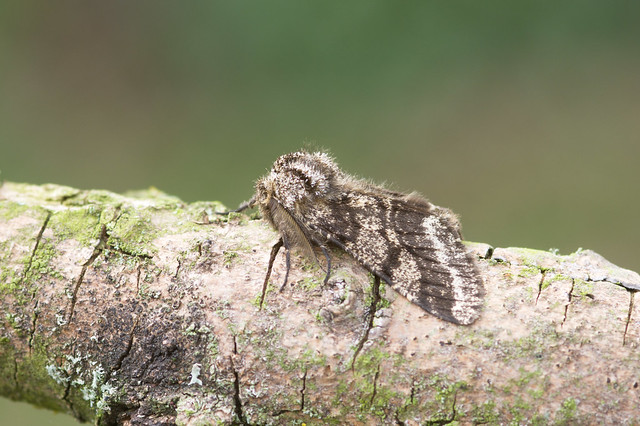
I had the luxury of an extra day off this week, and managed to get some free time to go and explore the nearby blackthorn which is in full flower, and attracting a decent variety of insects. My first small tortoiseshell of the year was very nice to see, along with a brace of peacocks and a single Brimstone skipping past on the breeze. The hoverfly contingent was dominated, as always this year, by
Eristalis pertinax, with a single
Melanostoma scalare the only other species I saw, although there were also a fair few Bee-flies on the wing, which are kind of honorary hoverflies in my mind.
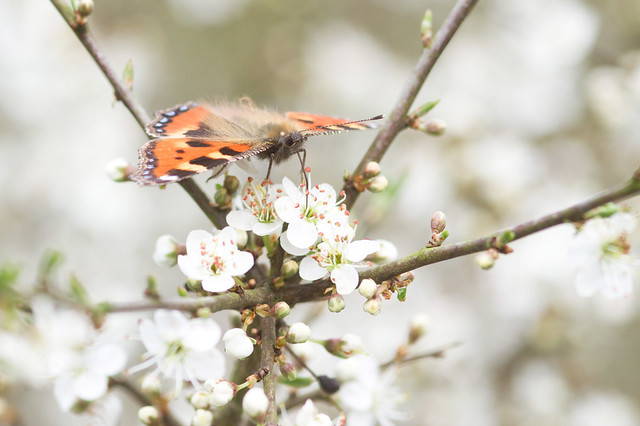 |
| Small Tortoiseshell |
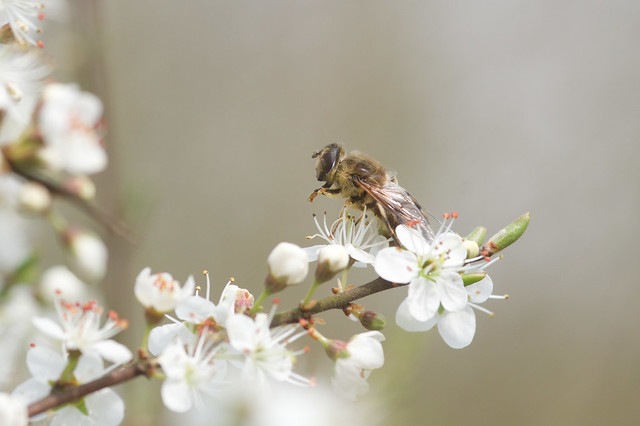 |
| Eristalis pertinax |
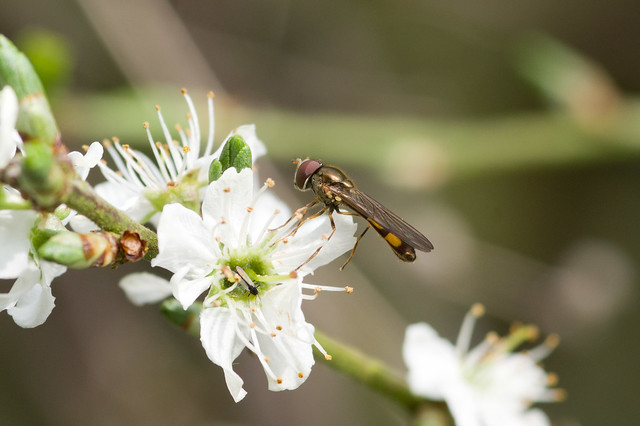 |
| Melanostoma scalare |
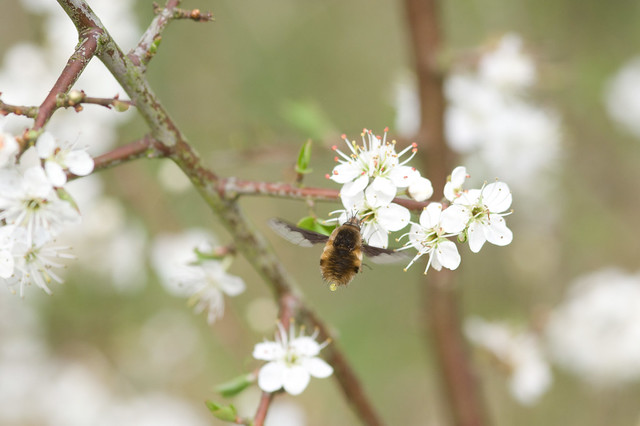 |
| Bee-fly |






No comments:
Post a Comment